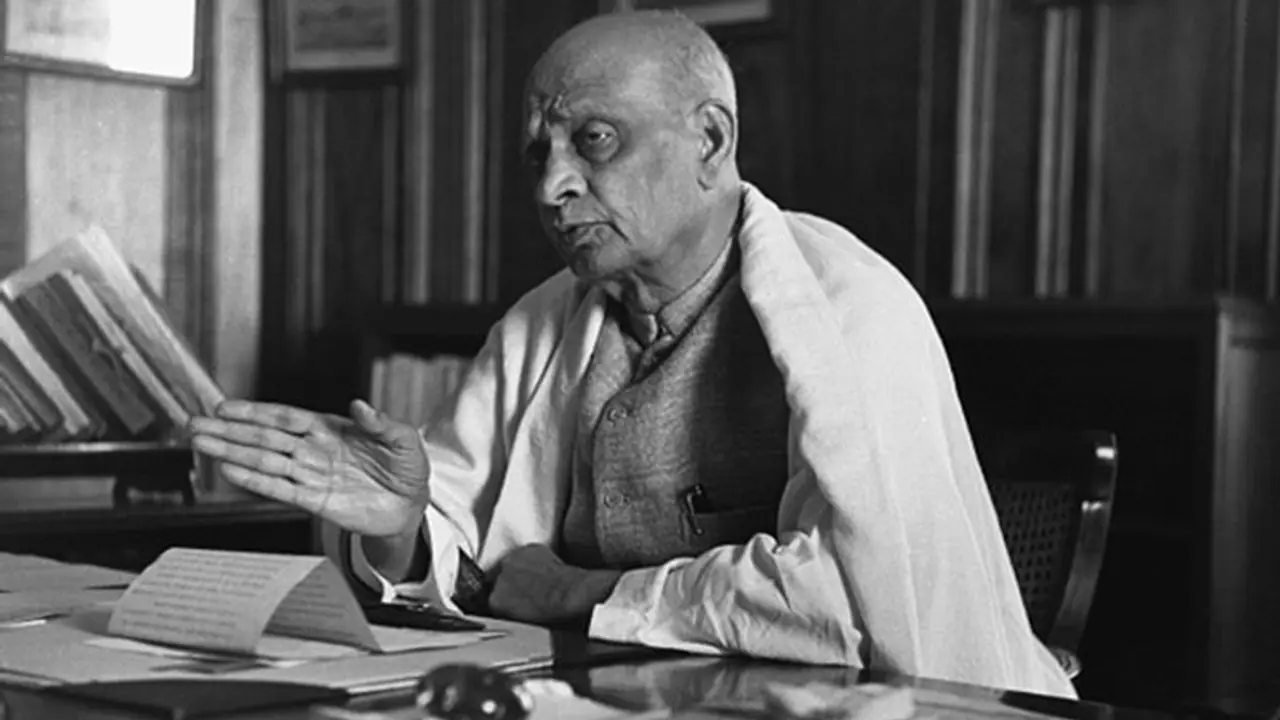Sardar Vallabhbhai Patel was the deputy prime minister, minister of home affairs, minister of information, and minister of states for the first three years of independent India.
Vallabhbhai Patel, famously known as Sardar Patel, was born into a self-sufficient landowning family of the Leva Patidar caste, Gujarat, on October 31, 1875. Patel completed the district pleader's examination and started practising law. He formed an autonomous office of the district pleader in Godhra in 1900 and later moved to Borsad.

Patel differed himself in introducing an unassailable case precisely and challenging police witnesses and British judges. Patel, in 1910 travelled to London to study in Middle Temple to enhance his legal profession. He studied tirelessly and passed with the Highest Honours.
Patel headed back to India in 1913 and wished to be the leading barrister in criminal law at the Ahmandabad bar. Patel was described as reserved and polite. His clothing was described as 'English-style' clothes. Patel was not interested in Indian political activities till 1917.
Intensely influenced by Gandhi's Satyagraha policy, 1917 was marked as a life-changing event for him. Patel engaged in the Satyagraha and was further involved in the Indian fight against the British. But, he never shared Gandhi's moral views or goals, and he believed Gandhi's emphasis on the universal application was irrelevant to India's urgent political, economic, and social problems. Patel modified his style and appearance after following and supporting Gandhi despite this. He left the Gujarat Club, dressed in Indian peasant's white cloth, and ate in Indian fashion.
Patel served as Ahmadabad's first Indian municipal commissioner between 1917 to 1924 and was elected municipal president from 1924 to 1928. Patel arranged mass campaigns of peasants, farmers, and Kaira, Gujarat, against the Bombay government in 1918 to collect the total annual revenue taxes despite crop failure caused by heavy rains.
Patel successfully heads the landowners of Bardoli in their resistance against increased taxes in 1928. His effective leadership of the Bardoli campaign earned him the title of 'Sardar', and subsequently, he was recognized as a nationalist leader in India. British recognized Patel as destructive, practical, decisive and even ruthless.
Patel differentiates on many views while debating over the objective of the Indian National Congress during the years 1928 to 1931. He believed the aim of the Indian National Congress should be power status within the British Commonwealth, not independence. Contrast with Jawaharlal Nehru's views on favouring violence in the struggle for independence. Patel rejected the armed revolution, stating practical reasons. Patel likewise Gandhi saw advantages in the future participation of a free India in a British commonwealth, considering India was an equal member. He stressed the need to promote Indian self-reliance and self-confidence. However, he did not believe Hindu-Muslim unity was a condition for independence.
Patel was the second in line to the presidency after Gandhi in the 1929 Lahore session of the Indian National Congress. However, Gandhi spurned the presidency of Patel to prevent the adoption of the resolution of independence and pressured Patel to withdraw, primarily owing to Patel's uncompromising attitude towards the Muslims. Not Patel, Jawaharlal Nehru was elected as the party president.
During the 1930 Salt Satyagraha, Patel served three months imprisonment. In March 1931, Patel headed the Karachi session of the Indian National Congress. He was detained in January 1932 and was released in July 1934. He marshalled the organization of the Congress Party on the 1937 elections and was counted as the leading contender for the 1937-38 Congress presidency. Acting again, Patel had to withdraw, and Jawaharlal Nehru was re-elected. Patel was again detained in October 1940, released in August 1941, and imprisoned in August 1942 and June 1945.
While in war, Patel deserted the unworkable Gandhi's nonviolence in the face of the then-expected Japanese invasion of India. On the transfer of the power, Patel debated with Gandhi in realizing that the partition of Hindu India and Muslim Pakistan was inevitable. He further claimed that it was in India's interests to part with Pakistan.
Patel again led the candidate for the 1944-46 president of the Indian National Congress, but Gandhi once against interfered and re-elected Nehru. Nehru was further called to form an interim government by the British ruler. Patel was the deputy prime minister, minister of home affairs, minister of information, and minister of states for the first three years of independence.
Patel's fame stems from his peaceful merger of princely Indian states into the Indian Union and India's political unification. In his honour, the Indian government has built the 'Statue of Unity', with 182 meters, recorded as the tallest statue in the World.
Also Read: Sardar Vallabhbhai Patel's archives go online from President's Twitter handle
Also Read: 'Ekta Marathon' in Bengaluru to commemorate Sardar Patel's birth anniversary
Also Read: Sardar Vallabhbhai Patel birth anniversary: Tributes pour in for Iron Man who unified Ek Bharat
